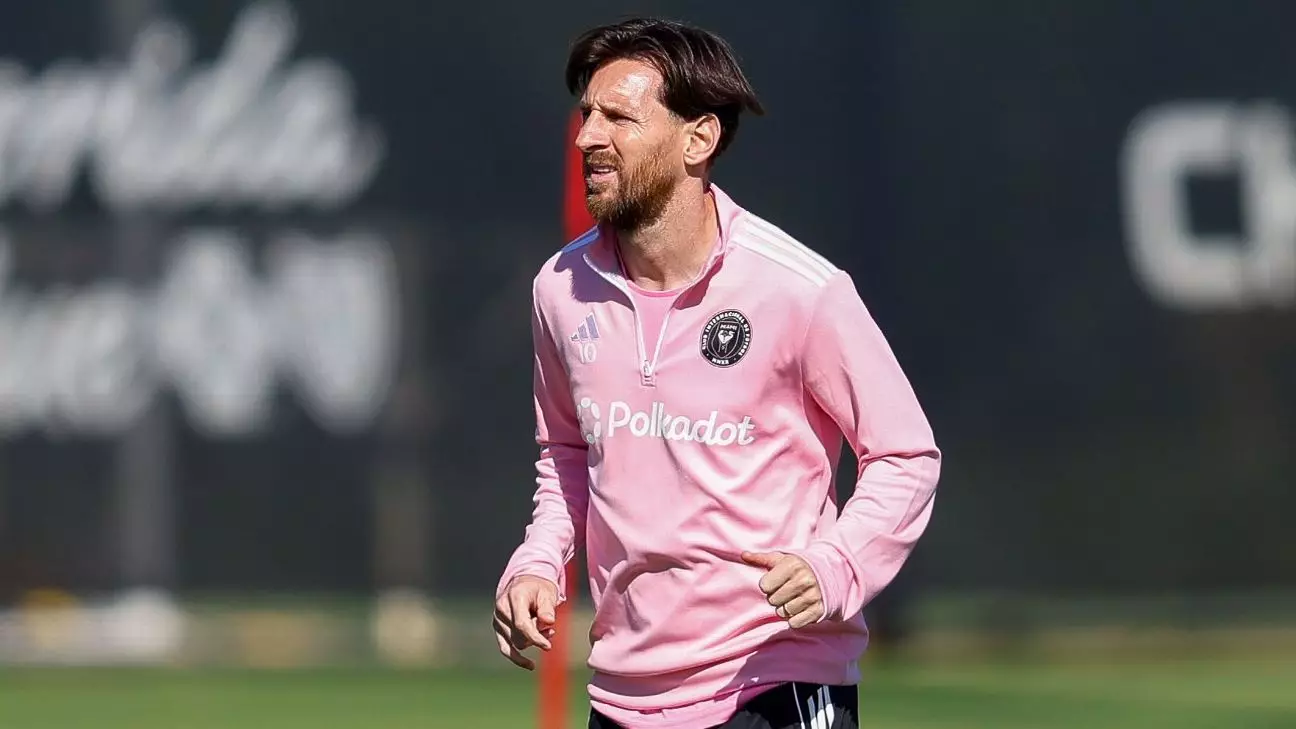In a surprising turn of events, Lionel Messi did not accompany his Inter Miami squad for their away match against the Houston Dynamo at Shell Energy Stadium. The decision, which comes from newly appointed head coach Javier Mascherano, highlights the team’s astute approach to managing player fatigue amidst a grueling schedule. While news of Messi’s absence initially stirred disappointment among fans expecting to witness the soccer legend in action, it reflects a calculated strategy aimed at ensuring the longevity and performance of one of the sport’s greatest athletes.
The 2025 season commenced with heightened expectations for Inter Miami, who kicked off their campaign with a tightly packed schedule, including important fixtures against Sporting Kansas City in the Concacaf Champions Cup and a home opener against New York City FC. This schedule, characterized by three matches in just ten days, necessitated careful consideration regarding player fitness, especially for seasoned athletes like Messi, who is now 37 years old.
Mascherano, while emphasizing the need to compete at a high level, demonstrated a commendable understanding of the physical toll that intense competition can take on players. Acknowledging that “there are not two equal situations,” he articulated the team’s situational context where managing player health takes precedence over short-term gains. This highlights a growing awareness within professional sports regarding the importance of player wellness, particularly as the demands placed on elite athletes intensify.
His decision to rest Messi, despite the player’s readiness, shows an approach that values long-term sustainability over immediate gratification. While many fans remain eager to see their star player in every match, especially during such an electric campaign kickoff, Mascherano’s statement reflects a broader responsibility to nurture talent, ensuring they can contribute on the field throughout the season.
The absence of Messi was met with mixed reactions from the fanbase, particularly for those who purchased tickets solely to see him play. The Houston Dynamo’s management acknowledged this sentiment, proactively offering fans a complimentary ticket to another match, thus softening the blow of Messi’s absence. This move serves as an excellent example of how organizations can foster goodwill among their supporters, reinforcing the notion that the soccer experience goes beyond just one player.
The Dynamo’s effort to enhance the fan experience reflects a growing trend within sports franchises that prioritize customer satisfaction. It underscores the need for clubs to recognize the emotional investment made by fans and ensure they feel valued, even when unexpected changes occur. While a ticket to a future match cannot replace the excitement of seeing Messi play, the gesture enhances the overall relationship between the franchise and its supporters.
Despite the setback of Messi sitting out the match against Houston, his anticipated participation in the upcoming fixture against Cavalier FC symbolizes the hope that permeates Inter Miami’s season. This balance of player rotation, especially with an athlete like Messi, represents a potential model for other clubs grappling with similar scenarios.
Moreover, this management strategy may signal a shift in how professional sports teams approach the influx of games in modern schedules. As teams increasingly rely on their stars to draw crowds and generate excitement, the imperative to manage these assets wisely becomes vital. For Inter Miami, striking this balance of competitiveness while preserving player well-being could be the key to elevating their performance not just this season, but in the years to come.
The decision not to play Messi emphasizes the complexities of modern sports management. While fans may feel disappointment in the short term, Mascherano’s strategic foresight could potentially lead Inter Miami to greater success as the season unfolds. As they navigate this intense journey, the lessons learned in player management and fan engagement will undoubtedly shape the future of the club and perhaps influence broader trends within professional soccer.

